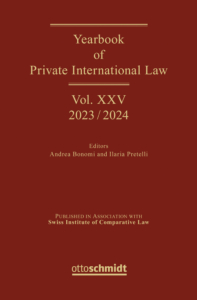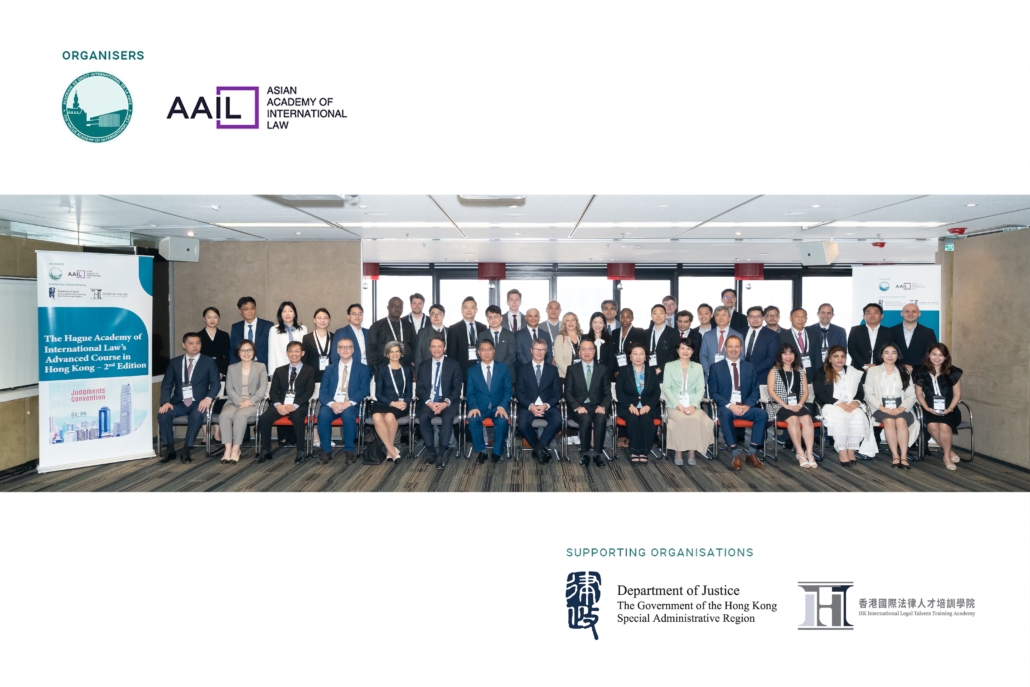Views
Enforceability of CAS awards in Greece – a short survey
Introductory remarks
Applications to recognize and enforce CAS awards are not part of Greek court’s daily order business. About ten years ago, the first decision of a Greek court was published, which accepted an application to declare a decision of the Court of Arbitration for Sports (CAS) enforceable. For this ruling, see here (in English), and here (in Spanish). Two recent decisions are added to this short list of judgments, where the corresponding decisions of the above sports arbitration body were again declared enforceable
(Piraeus Court of first instance, decision published on 28. July 2021, and Thessaloniki Court of first instance, decision published on 26. April 2022, both unreported).
A summary of the new decisions
The first decision concerned a company of sport? management located in France, who initiated CAS proceedings against a football team in Greece due to non-payment of agreed fees for the transfer of a football player. The CAS granted the application and ordered the payment of 45.000 Euros and 16.391 CHF for the costs of the arbitral proceedings (case number 2018/O/5850).
The second decision concerned two accredited sports managers from Argentina against an Argentinian football player who terminated unilaterally the agreement, hence, he failed to abide by the conditions of the contract signed with the managers. They initiated arbitration proceedings before the CAS, which ordered the payment of 1 million Euros and 49.585,80 CHF for the costs of the arbitral proceedings (case number 2014/O/3726). The player appealed unsuccessfully before the Swiss Supreme Court (no reference available in the text of the decision).
Main findings
From the assessment of the aforementioned decisions, it is possible to draw the following conclusions:
- NYC: The ruler of the game. The application of the New York Convention regarding requests to recognize CAS awards is undisputable and common to all Greek decisions.
- National rules of Civil procedure. From the combination of Articles 3 and 4 NYC, and those of the Greek Code of Civil Procedure (Book on voluntary jurisdiction), it is clearly concluded that the true meaning of Articles 3 and 4 of the above convention is that, the one who requests the declaration of enforceability of a foreign arbitral award, is required to present the relevant decision and the arbitration agreement, either in original or in an official copy, as well as an official translation into the Greek language, during the hearing of his application, and without being obliged to file these documents at the court, when submitting the relevant application.
This because, to the eyes of Greek judges, Article 4 NYC, referring to a presentation “at the time of the application”, does not determine the procedural ‘moment’ (stage) when the documents of the arbitration agreement and the arbitral decision must be submitted to the court. It simply determines the burden of proof and the party borne with it. The procedural method and the time of presentation of the documents referred to in Article 4 § 1 NYC are still regulated by the procedural law of the trial judge, in the case at hand the Greek Code of Civil Procedure.
- Field of application of CAS. On the grounds of the decisions rendered by Greek courts, it has been confirmed that the CAS has jurisdiction over the following disputes:
- Application for arbitration by an athlete against the team in which he plays;
- Application for arbitration by the sports manager of athletes and/or coaches against the sports club.
- Application for arbitration by the sports manager against the athlete.
- Enforceability in the country of origin not a pre-requisite. Contrary to finality, it is not necessary to meet the condition of enforceability of the arbitral award in the state of origin, i.e., Switzerland.
- Enforceability of CAS Costs. The ‘order’ awarding arbitration costs, following the CAS award, must also be declared enforceable, according to Rule R.64.4 CAS Procedural Rules. The matter is noteworthy, as the above ‘order’ is issued after the award by the CAS Secretariat, not by the arbitration Panel that ruled on the dispute, and without the participation of the parties. However, it should be underlined that the letter from the CAS Secretariat merely specifies the amount of the arbitration costs awarded by the Panel; hence, it is considered as belonging to the award’s operative part. In addition, the act of awarding costs is notified to the parties in accordance with CAS rules.
- Irreconcilable judgments. It is not necessary to furnish a certificate of non-irreconcilability with a decision, by following the domestic model of article 903 § 5 and 323 nr. 4 Greek Code of Civil Procedure. According to the judgment of the Greek court, it is not permissible to transfuse a condition regulated by domestic arbitration law into the context of the New York Convention.
- No revision on the merits. Finally, although not directly stated in the text of the NYC, a revision of the foreign arbitral award by the Greek court is prohibited, the latter being unanimously accepted and labelled as the principle of non-examination on the merits.
Case C-572/21: The Court of Justice of the EU on the interrelationship between the Brussels II bis Regulation and the 1996 Child Protection Convention – The perpetuatio fori principle
Written by Mayela Celis, UNED
On 14 July 2022 the Court of Justice of the European Union (CJEU) ruled on the interrelationship between the Council Regulation (EC) No 2201/2003 of 27 November 2003 concerning jurisdiction and the recognition and enforcement of judgments in matrimonial matters and the matters of parental responsibility, repealing Regulation (EC) No 1347/2000 (Brussels II bis Regulation) and the HCCH 1996 Child Protection Convention. This case concerns proceedings in Sweden and the Russian Federation and deals in particular with the applicability of the perpetuatio fori principle contemplated in Article 8(1) of the Brussels II bis Regulation. The judgment is available here.
Facts
Mother (CC) gave birth to child (M) in Sweden. CC was granted sole custody of the child from birth.
Until October 2019 child resided in Sweden.
From October 2019 child began to attend a boarding school on the territory of the Russian Federation.
Father (VO) brought an application before the District Court of Sweden and several proceedings ensued in Sweden, holding inter alia that Swedish courts have jurisdiction under Article 8(1) of the Brussels II bis Regulation. CC brought an application before the Supreme Court of Sweden asking the court to grant leave to appeal and to refer a question to the CJEU for a preliminary ruling.
Question referred for preliminary ruling
‘Does the court of a Member State retain jurisdiction under Article 8(1) of [Regulation No 2201/2003] if the child concerned by the case changes his or her habitual residence during the proceedings from a Member State to a third country which is a party to the 1996 Hague Convention (see Article 61 of the regulation)?’
Main ruling
Article 8(1) of Council Regulation (EC) No 2201/2003 of 27 November 2003 concerning jurisdiction and the recognition and enforcement of judgments in matrimonial matters and the matters of parental responsibility, repealing Regulation (EC) No 1347/2000, read in conjunction with Article 61(a) of that regulation, must be interpreted as meaning that a court of a Member State that is hearing a dispute relating to parental responsibility does not retain jurisdiction to rule on that dispute under Article 8(1) of that regulation where the habitual residence of the child in question has been lawfully transferred, during the proceedings, to the territory of a third State that is a party to the Convention on Jurisdiction, Applicable Law, Recognition, Enforcement and Co-operation in Respect of Parental Responsibility and Measures for the Protection of Children, signed at The Hague on 19 October 1996 (our emphasis).
Analysis
This is a very welcome judgment as it allows for the proper application of the 1996 Child Protection Convention to a case involving an EU Member State (Sweden) and a Contracting Party to the 1996 Child Protection Convention (the Russian Federation).
At the outset, it should be emphasised that this case deals with the lawful transfer of habitual residence and not with the unlawful transfer (removal or retention) such as in the case of international child abduction. In the latter case both the Brussels II bis Regulation and the 1996 Child Protection Convention provide for the retention of the jurisdiction in the EU Member State / Contracting State in which the child was habitually resident immediately before the removal or retention.
It is also important to clarify that contrary to the Brussels II bis Regulation, the 1996 Child Protection Convention does not adopt the principle of perpetuatio fori when dealing with general basis of jurisdiction (Article 5 of the Convention; see also para. 40 of the judgment). The 1996 Child Protection Convention reflects the view that the concept of habitual residence is predominantly factual and as such, it can change even during the proceedings.
As to the principle of perpetuatio fori, the CJEU indicates:
“By referring to the time when the court of the Member State is seised, Article 8(1) of Regulation No 2201/2003 is an expression of the principle of perpetuatio fori, according to which that court does not lose jurisdiction even if there is a change in the place of habitual residence of the child concerned during the proceedings” (para. 28, our emphasis).
With regard to the interrelationship between these two instruments, the CJEU says:
“In that regard, it should be noted that Article 61(a) of Regulation No 2201/2003 provides that, as concerns the relation with the 1996 Hague Convention, Regulation No 2201/2003 is to apply ‘where the child concerned has his or her habitual residence on the territory of a Member State’” (para. 32).
“It follows from the wording of that provision that it governs relations between the Member States, which have all ratified or acceded to the 1996 Hague Convention, and third States which are also parties to that convention, in the sense that the general rule of jurisdiction laid down in Article 8(1) of Regulation No 2201/2003 ceases to apply where the habitual residence of a child has been transferred, during the proceedings, from the territory of a Member State to that of a third State which is a party to that convention” (para. 33, our emphasis).
In my view, this judgment interprets correctly Article 52 of the 1996 Child Protection Convention, which was heatedly debated during the negotiations, as well as the relevant provisions of the Brussels II bis Regulation. In particular, the formulation in both Article 61(a) of the Brussels II bis Regulation “where the child concerned has his or her habitual residence on the territory of a Member State” and Article 52(2) of the 1996 Child Protection Convention “[This Convention does not affect the possibility for one or more Contracting States to conclude agreements which contain] in respect of children habitually resident in any of the States Parties to such agreements [provisions on matters governed by this Convention]” has been properly considered by the CJEU as the habitual residence of the child is the Russian Federation.
To rule otherwise would have reduced significantly the applicability of the 1996 Child Protection Convention and would have run counter Articles 5(2) and 52(3) of the referred Convention (see para. 42 of the judgment).
As this judgment only deals with Contracting Parties to the 1996 Child Protection Convention, it only makes us wonder what would happen in the case of bilateral treaties or in the absence of any applicable treaty (but see para. 29 of the judgment).
For background information regarding the negotiations of Article 52 of the 1996 Child Protection Convention see:
– Explanatory Report of Paul Lagarde (pp. 601-603)
– Article by Hans van Loon, “Allegro sostenuto con Brio, or: Alegría Borrás’ Twenty-five Years of Dedicated Work at the Hague Conference.” In J. Forner Delaygua, C. González Beilfuss & R. Viñas Farré (Eds.), Entre Bruselas y La Haya: Estudios sobre la unificación internacional y regional del derecho internacional privado: Liber amicorum Alegría Borrás (pp. 575-586). Madrid: Marcial Pons, pp. 582-583.
Just released: EFFORTS Report on Practices in Comparative and Cross-Border Perspective
On 19 July 2022, a new Report on practices in Comparative and Cross-Border Perspective was posted on the website of EFFORTS (Towards more EFfective enFORcemenT of claimS in civil and commercial matters within the EU), an EU-funded Project conducted by the University of Milan (coord.), the Max Planck Institute Luxembourg for Procedural Law, the University of Heidelberg, the Free University of Brussels, the University of Zagreb, and the University of Vilnius.
The Report was authored by Marco Buzzoni and Carlos Santaló Goris (both Max Planck Institute Luxembourg for Procedural Law).
By building upon the deliverables previously published by the Project Partners (available here), the Report casts light on the implementation of five EU Regulations on cross-border enforcement of titles (namely: the Brussels I-bis, EEO, EPO, ESCP, and EAPO Regulations) in the seven EU Member States covered by the Project (Belgium, Croatia, France, Germany, Italy, Lithuania, and Luxembourg). Against this background, the Report notably provides an in-depth analysis of national legislation and case law in an effort to identify general trends and outstanding issues regarding the cross-border recovery of claims within the European Union.
Regular updates on the EFFORTS Project are available via the Project’s website, as well as LinkedIn and Facebook pages.

Project JUST-JCOO-AG-2019-881802
With financial support from the Civil Justice Programme of the European Union
News
The American Branch of the International Law Association is seeking a new Chief Operating Officer
Second edition of The Hague Academy of International Law’s Advanced Course in Hong Kong on “Recognition and Enforcement of Foreign Judgments in Civil or Commercial Matters: Judgments Convention”
From 2 to 6 December 2024, the second edition of The Hague Academy of International Law’s Advanced Course in Hong Kong was held, co-organised by the Asian Academy of International Law (AAIL) with the support of the Department of Justice of the Government of the Hong Kong SAR. Once again, the Hague Academy of International Law brought distinguished speakers to the “fragrant harbour” to deliver lectures on the “Recognition and Enforcement of Foreign Judgments in Civil or Commercial Matters”. Just a stone’s throw from the Old Supreme Court Building (now the seat of Hong Kong’s Court of Final Appeal) at the premises of the Hong Kong Club, legal scholars, national judges, government officials and legal practitioners from over 20 jurisdictions as diverse as Laos, the People’s Republic of China, (francophone) Cameroon, The Netherlands, South Africa or the Kingdom of Saudi Arabia came together to discuss their respective experiences and the prospects of the latest instrument in this field, the HCCH 2019 Judgments Convention.
[Now Available] Yearbook of Private International Law Vol. XXV – 2023/2024
 The latest volume of the Yearbook of Private International Law has been recently published, marking the 25th anniversary of its significant contribution to outstanding legal scholarship in the field of comparative private international law.
The latest volume of the Yearbook of Private International Law has been recently published, marking the 25th anniversary of its significant contribution to outstanding legal scholarship in the field of comparative private international law.
Readers will undoubtedly appreciate the Editors’ Foreword as well as the insightful tributes dedicated to this milestone edition written by Professors Nadjma Yassari (A Quarter-Century of Excellence), Symeon C. Symeonides (A Tribute), and Ivana Kunda (Petar Šarcevic – The Intellectual Behind the Name). These contributions, which reflect on the Yearbook’s impact and achievements over the years, are freely available online, offering a fitting celebration of this remarkable anniversary.
The Yearbook’s latest volume features the following table of contents: Read more




